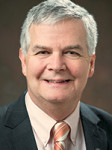State Now 23rd in Healthcare Outcomes
We ranked 7th in 1990. How can we turn that around?
We’ve been hearing a lot in the news lately about our health. Just last week, I found myself in many conversations with healthcare professionals talking about ways to improve the health of our community – and no, I’m not only talking about keeping our communities safe by preventing the spread of coronavirus.
Throughout my conversations with caregivers, nurses, health professionals and researchers, we identified prominent issues affecting the state of public health in Wisconsin. While discussing issues, from surprise medical bills to the nursing shortage to the opioid epidemic, I started to think about how we’re all connected to these issues in one way or another.
Although we may not be directly impacted by these health challenges in our personal lives, they affect our community in significant ways. Collectively, our state has a role to play for addressing public health challenges and making our communities healthier for all. Our capacity to empathize with others has the ability to save lives.
The real value of the panel was listening to the health professionals who live within the communities they serve. Being around incredibly smart people in the medical field could be intimidating, but I found their concerns and potential solutions were similar to what I’ve heard from residents of rural western Wisconsin.
For example, we agreed Wisconsin must join other neighboring states by investing in broadband expansion to advance access to rural clinics and health professionals. This idea is also something I’ve heard many times from residents of western Wisconsin. Broadband expansion has been a boon to our neighboring states’ rural communities in sustaining a strong economy and improving telehealth availability for the elderly or patients who may face difficulties in traveling. It only makes sense.
After the panel, I met a physician with years of experience in improving healthcare delivery, continuing his mission to help health systems provide the best care to their patients. During our conversation, he reminded me about Wisconsin’s significant drop in healthcare outcomes. According to the 2019 United Health Foundation’s Annual Report, Wisconsin ranked 7th nationally for healthcare outcomes in 1990. In 2019, we’ve fallen 16 spots to 23rd. By comparison, Minnesota only dropped from 2nd to 7th and Illinois increased their rank from 24th to 29th in the same time period. Republicans have not found the political will to expand Medicaid, while neighboring states have, it’s not a coincidence this has been the result.
We have a responsibility to expand Medicaid in Wisconsin. For each month that Republicans refuse to act, Wisconsin wastes approximately $13 million in state funding to pay for other states’ Medicaid programs. Over the next two years, Wisconsin would save $320 million, while lowering premiums for private insurance holders by 7 to 11 percent.
I’ve noticed lawmakers or individuals in positions of power don’t take action unless they are directly or severely affected. During the public health forum, many healthcare professionals pointed out, more than once, that Wisconsin has a serious opioid addiction problem.
The opioid epidemic, affecting individuals, families and communities across the country, is not new to Wisconsin, but it has become considerably worse in recent years. It wasn’t until legislators personally knew someone or knew a family affected by the opioid epidemic that action was taken. We should never wish such pain on any family, but we ought to develop empathy for others and collaborate to address public health challenges, before we may have to experience it for ourselves.
Let’s think ahead and think about others. We should use our empathy for decision making so we can find our way out of this black hole of inaction. It’s lifesaving.
Wisconsin State Senator Jeff Smith represents Wisconsin’s 31st Senate District.
Op-Ed
-
Wisconsin Candidates Decry Money in Politics, Plan to Raise Tons of It
 Dec 15th, 2025 by Ruth Conniff
Dec 15th, 2025 by Ruth Conniff
-
Trump Left Contraceptives to Rot; Women Pay the Price
 Dec 8th, 2025 by Dr. Shefaali Sharma
Dec 8th, 2025 by Dr. Shefaali Sharma
-
Why the Common Council’s Amended Budget is Good Policy for Milwaukee
 Nov 20th, 2025 by Alds. Marina Dimitrijevic and Russell W. Stamper, II
Nov 20th, 2025 by Alds. Marina Dimitrijevic and Russell W. Stamper, II





















